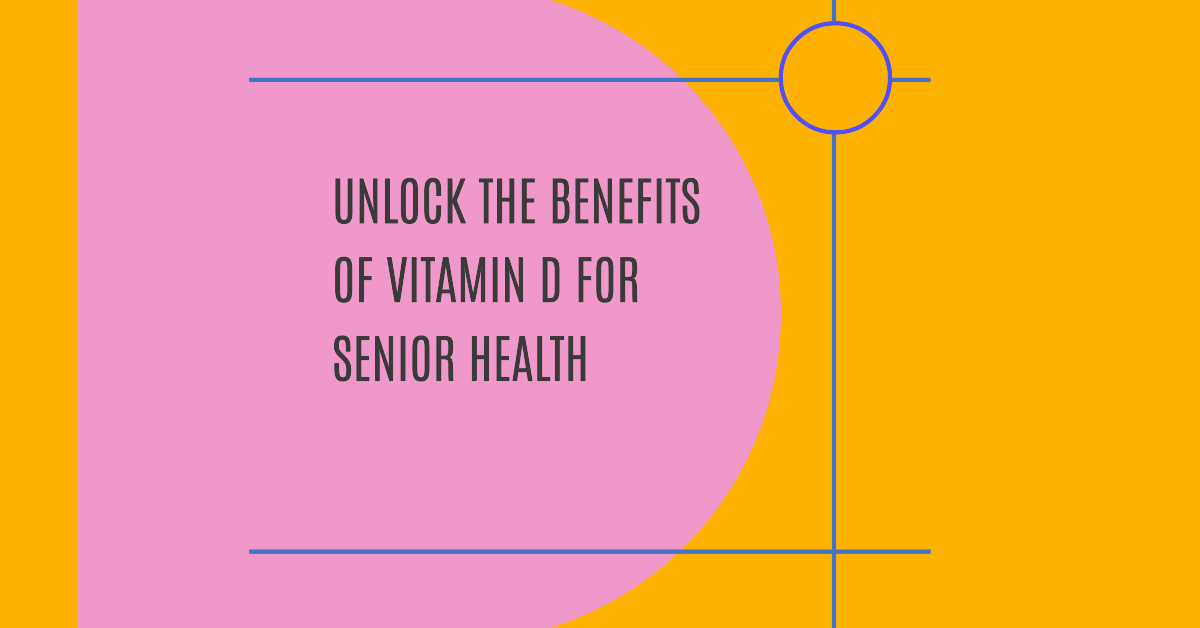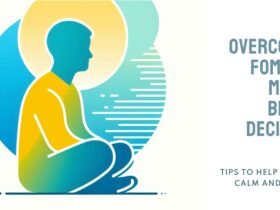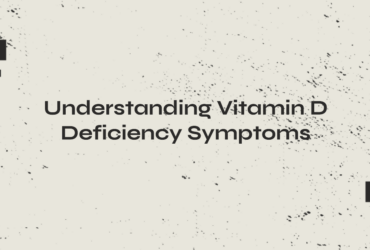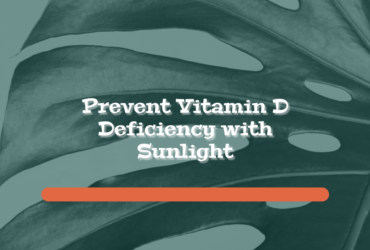As the golden years unfold, maintaining optimal health becomes increasingly vital. Among the array of nutrients essential for seniors, vitamin D stands out as a key player. This article dives deep into the significance of vitamin D for seniors, exploring its benefits, sources, recommendations, and more. Join us on this enlightening journey to understand how this mighty nutrient can empower the well-being of our beloved seniors.
Table of Contents
The Crucial Role of Vitamin D for Seniors
Vitamin D plays a pivotal role in the lives of seniors, offering a multitude of benefits that contribute to their overall health. From promoting bone strength to enhancing the immune system, vitamin D is an indispensable nutrient that can make a remarkable difference in their well-being.
Supporting Strong Bones and Joints
Seniors are more prone to bone-related issues such as osteoporosis and fractures. Vitamin D aids in calcium absorption, which is crucial for maintaining bone density and preventing fractures. Ensuring adequate vitamin D intake can significantly reduce the risk of bone-related ailments.
Boosting Immune Function
A robust immune system is essential for seniors to fend off infections and diseases. Vitamin D has been shown to modulate immune responses, helping seniors stay healthier and more resistant to illnesses.
Mood Elevation and Cognitive Health
Vitamin D has been linked to mood regulation and cognitive health. Seniors with sufficient vitamin D levels are less likely to experience mood disorders and cognitive decline, contributing to a better quality of life.
The Sunshine Vitamin: Sources of Vitamin D
While sunlight is a primary source of vitamin D, seniors often spend less time outdoors, making it crucial to explore alternative sources of this vital nutrient.
Sunlight: The Natural Source
Sunlight triggers the synthesis of vitamin D in the skin. Just a few minutes of sun exposure several times a week can help seniors meet their vitamin D needs. However, considering skin sensitivity and the risk of sunburn, it’s important to strike a balance between sun exposure and protection.
Dietary Delights
Include vitamin D-rich foods in seniors’ diets to ensure a consistent intake of this nutrient. Fatty fish like salmon and mackerel, fortified dairy products, eggs, and mushrooms are excellent sources of vitamin D.
Recommended Intake and Testing
Understanding the recommended daily intake and testing procedures for vitamin D is essential for seniors’ well-being.
Recommended Daily Intake
For seniors aged 70 and above, the recommended daily allowance (RDA) for vitamin D is 800 IU (20 mcg). However, individual requirements may vary, so consulting a healthcare professional is advisable.
Testing Vitamin D Levels
Regular testing of vitamin D levels is crucial to ensure adequacy. A simple blood test can determine if seniors are getting enough of this nutrient. If levels are low, healthcare providers can recommend appropriate supplements.
Tips for Optimizing Vitamin D Intake
Here are practical tips to help seniors maintain optimal vitamin D levels and reap its benefits.
Safe Sun Practices
Encourage seniors to enjoy sunlight safely. Aim for sun exposure in the early morning or late afternoon, and always use sunscreen to protect the skin.
Nutrient-Rich Diet
Emphasize the importance of a balanced diet rich in vitamin D sources. Including a variety of foods can help seniors achieve their nutritional goals.
Supplementation as Needed
In cases where natural sources are insufficient, supplements can bridge the gap. However, seniors should consult a healthcare professional before starting any supplementation regimen.
Conclusion
Vitamin D is a remarkable nutrient that holds the power to enhance the well-being of seniors. From supporting bone health to bolstering the immune system and promoting cognitive function, its benefits are undeniable. By embracing sunlight, consuming vitamin D-rich foods, and considering supplementation under medical guidance, seniors can harness the potential of this sunshine vitamin. Remember, taking proactive steps to maintain optimal vitamin D levels can empower seniors to lead healthier, more vibrant lives.
FAQs
-
Can seniors get enough vitamin D from their diet alone?
Absolutely, seniors can get vitamin D from foods like fish, eggs, and fortified dairy. However, due to factors like reduced appetite and dietary restrictions, supplements might be necessary.
-
Is it possible to overdose on vitamin D?
While excessive vitamin D intake is rare, it’s important to stick to recommended guidelines. High doses can lead to toxicity, causing symptoms like nausea, weakness, and kidney problems.
-
Can mobility issues among seniors affect their vitamin D levels?
Yes, seniors with limited mobility might have reduced sun exposure, affecting their vitamin D synthesis. This makes dietary sources and supplementation even more important.
-
Are there any interactions between medications and vitamin D supplements?
Some medications can interfere with vitamin D absorption or metabolism. Seniors should consult their healthcare provider to ensure there are no adverse interactions.
-
Can vitamin D prevent age-related eye conditions?
Emerging research suggests that vitamin D may play a role in protecting against age-related eye diseases, such as macular degeneration. However, further studies are needed to establish a definitive link.
-
How does vitamin D impact heart health in seniors?
Vitamin D’s anti-inflammatory and cardiovascular benefits may contribute to heart health in seniors. Adequate levels might help reduce the risk of heart disease and related complications.
As we age, ensuring optimal bone health and supporting our immune systems becomes increasingly vital. By harnessing the power of Vitamin D, seniors can take proactive steps towards leading active, vibrant lives. To delve deeper into the world of senior health and discover more informative articles, click here. Your journey to informed and empowered senior living starts now.














Leave a Reply
View Comments